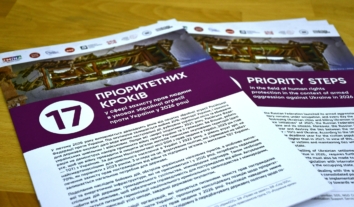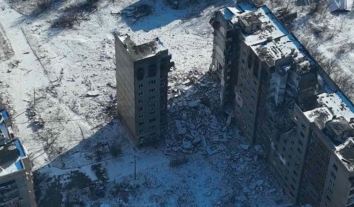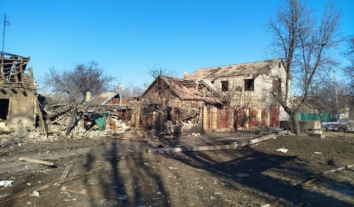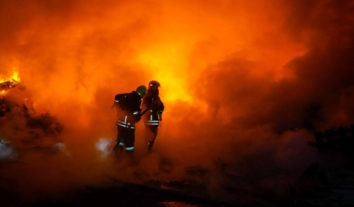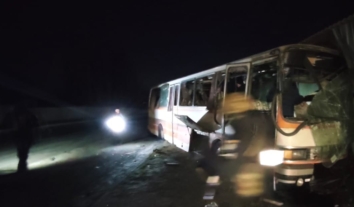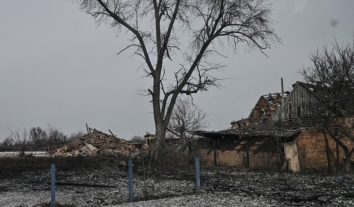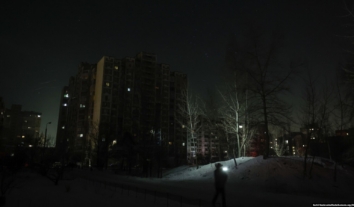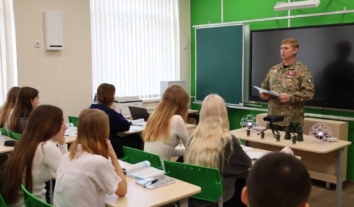Russian occupying authorities harassed journalist Lutfiye Zudiyeva in Ukraine’s Crimea
The Committee to Protect Journalists (CPJ) called on the temporary authorities in the Russian-occupied Ukrainian peninsula of Crimea to stop intimidating journalist Lutfiye Zudiyeva and let members of the press work freely.
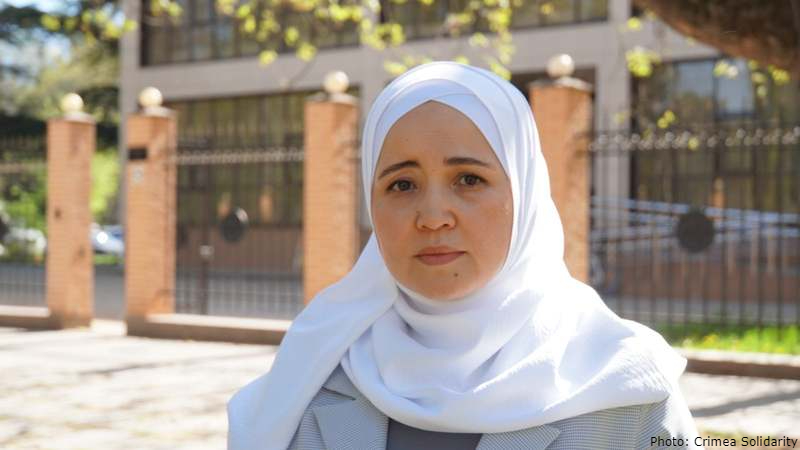 Lutfiye Zudiyeva
Lutfiye ZudiyevaOn Monday, May 6, an “officer” of the illegitimate “Ministry of Internal Affairs of Russian Federation” in the city of Dzhankoi, in northern Crimea, came to Zudiyeva’s home to question her.
She refused to answer, according to the journalist, who spoke to CPJ and posted a video of the visit on X, formerly Twitter, and a report by local human rights group Crimean Solidarity.
The “officer” who spoke to Zudiyeva on Monday said he was with the “criminal investigation department of the Ministry’s Dzhankoi branch,” and was sent by the “Crimean branch of the Ministry of Internal Affairs’ Center for Combating Extremism”, but he did not reveal the purpose of the questioning.
The next day, another “officer” with the “Ministry” came to her home and asked her to sign a document warning her about the “inadmissibility of violating the law,” Zudiyeva reported on Facebook.
Both agents said they were “executing the order of higher authorities,” Zudiyeva told CPJ.
“Lutfiye Zudiyeva is one of few remaining independent journalists in the Russian-occupied Ukrainian region of Crimea. She should not be pressured over her crucial reporting of human rights issues in the peninsula,” said Gulnoza Said, CPJ’s Europe and Central Asia program coordinator.
“Authorities must immediately stop harassing Zudiyeva and let press members work freely,” added Gulnoza Said.
According to Crimean Solidarity, the document Zudiyeva signed on Tuesday stated that the journalist is aware of her “responsibility for violating” the rules of mass protests.
This document, which does not have any legal force, can be used as an aggravating factor to prosecute her if she were to cover an event that the authorities have deemed illegal, she told CPJ. She added that neither the document nor the “police officer” specified the basis of the warning, what event was at issue, or how the journalist was connected to it.
“They use this document as an act of psychological pressure to deter the journalist from [covering the event] and make them engage in self-censorship,” she explained.
Furthermore, on May 6, 2024, several local lawyers and activists were handed down similar warnings.
Lutfieye Zudiyeva explained that it is a long-standing practice to issue warnings in May.
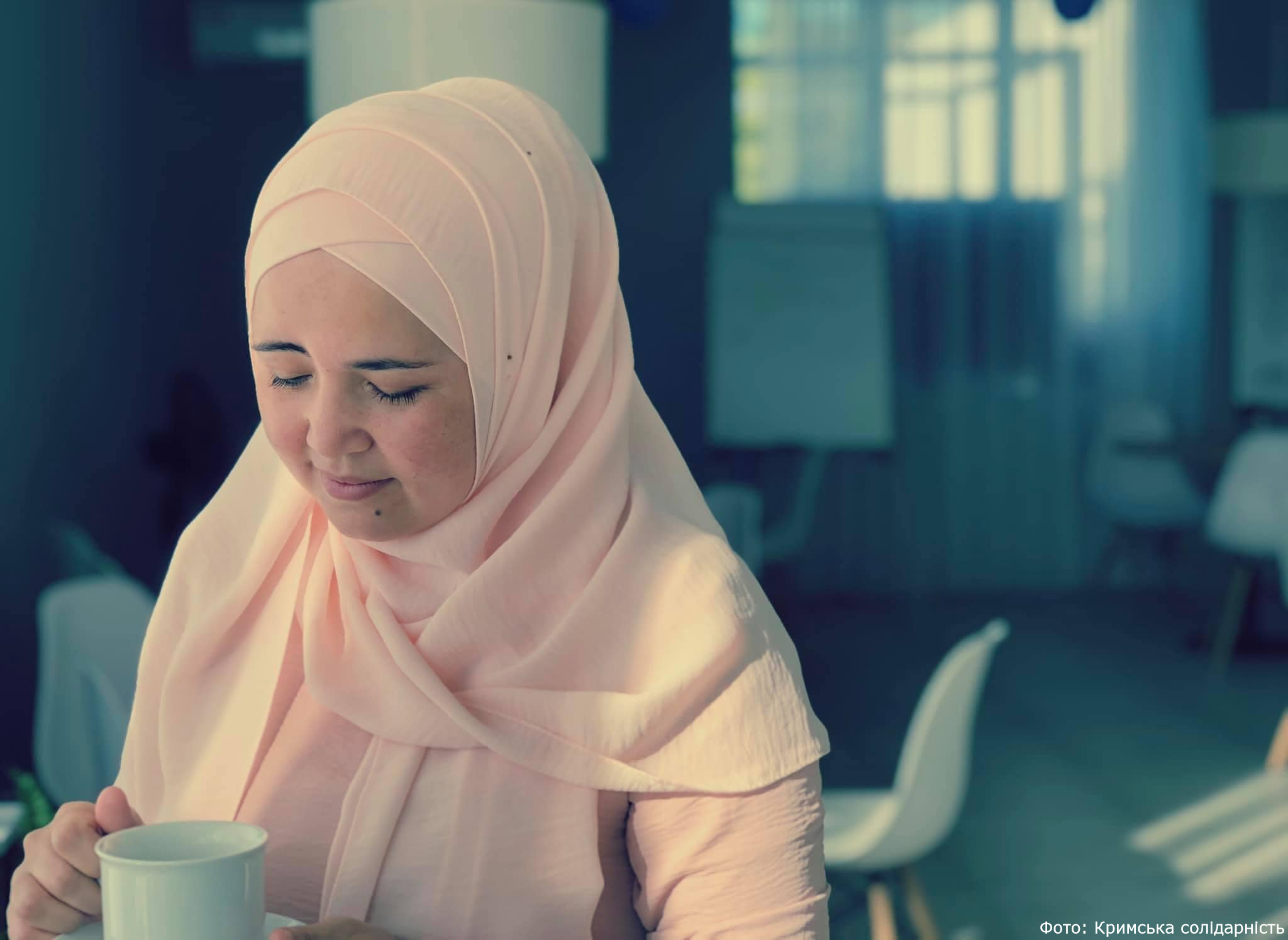 Lutfiye Zudiyeva
Lutfiye Zudiyeva“We assume that this is related to the upcoming date of May 18, the anniversary of the [Soviet authorities’] deportation of the Crimean Tatar people [in 1944],” she said. “Traditionally on these days in Crimea there are many events of different nature, including mass gatherings of Crimean Tatars at memorials […], as well as collective prayer services in all Crimean mosques”, Zudiyeva told CPJ, adding that “huge rallies” were previously held in the centre of Simferopol, Crimea’s capital, but that the Russian authorities had banned them.
“Naturally, journalists have tried to cover these events because this date is important both for Crimean Tatars and other peninsula residents,” she added.
CPJ’s call to the Dzhankoi branch of “the Ministry of Internal Affairs of Russia” did not connect.
Zudiyeva has covered the plight and trials of Crimean political prisoners as a member of the grassroots initiative Crimean Solidarity since 2016. She joined the editorial staff of the media project Graty in July 2021 and is interning in forensic journalism and storytelling, she told CPJ.
In July 2023, a Crimean court fined Zudiyeva RUR 12,000 (USD 132) and charged her with participating in an illegal protest “with the purpose of subsequently giving information in the media.”
In February 2024, “officers” of the illegitimate “Center for Combating Extremism” searched Zudiyeva’s house, seized her technical equipment, and detained her for around six hours, according to media reports.
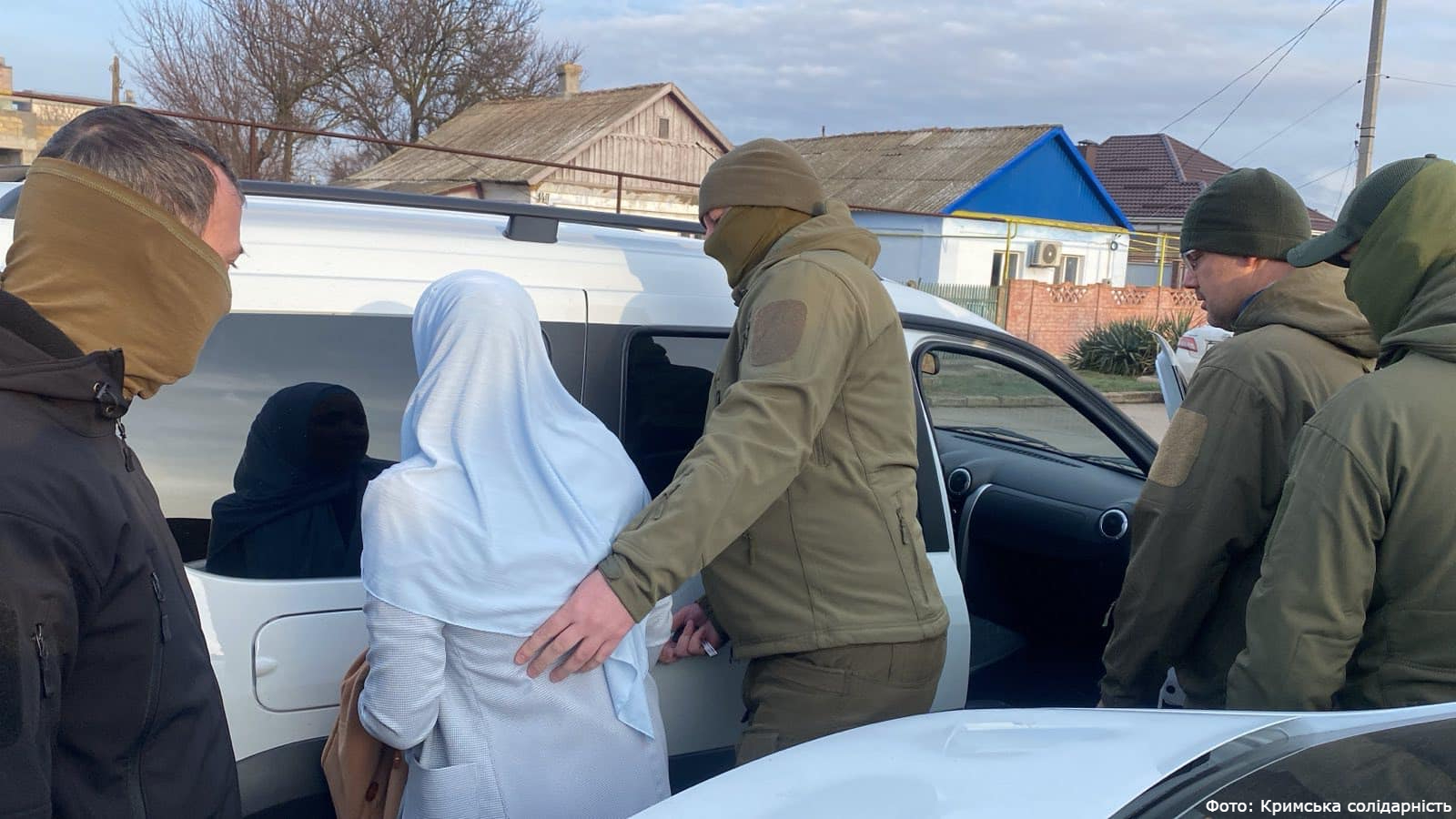 Detention of Lutfiye Zudiyeva on February, 21, 2024
Detention of Lutfiye Zudiyeva on February, 21, 2024Since 2019, Zudiyeva has been fined three other times, for a total amount of 6,500 rubles (US$71), in connection with her posts on social media, she told CPJ. She received the last two fines following the February search.
Crimean Solidarity is a support group that helps Crimean political prisoners by publicizing their prosecution and advocating for their release, as CPJ has documented. Since Russian authorities cracked down on independent media in temporarily occupied Crimea after militarily seizing it in 2014, many reporters have engaged in “civic journalism,” particularly focused on human rights issues affecting Crimean Tatars, according to media reports and CPJ’s research.
Earlier in May 2024, the UN High Commissioner for Human Rights, Volker Türk, voiced concern with the increasing number of journalists charged, convicted, and jailed by Russia for their independent reporting in what appears to be an intensified crackdown on dissenting voices.
According to the UN, since the start of the Russian invasion of Ukraine on 24 February 2022, the number of imprisoned journalists in Russia has reached an all-time high.
At least 30 journalists are currently detained in Russia under a variety of criminal charges, including terrorism, extremism, disseminating knowingly false information about the armed forces, spying, treason, extortion, infringing upon people’s rights, violating the provisions of the law on foreign agents, inciting mass disturbances, illegal possession of explosives, and unlawful possession of drugs. Out of the 30 reporters deprived of liberty, 12 are serving sentences ranging from five-and-a-half to 22 years in prison.
Since March, at least seven journalists have faced administrative or criminal charges, particularly for criticism of Russia’s actions in Ukraine or for alleged links to the late opposition politician Alexey Navalny and his Anti-Corruption Foundation (FBK), which was labelled as ‘extremist’ in 2021.
“The Russian authorities appear to be attempting to further strengthen control of the narrative, both around domestic issues and the conduct of hostilities in Ukraine. As a result, people in Russia have increasingly restricted access to non-State information and viewpoints, which hampers their ability to benefit from diverse sources and make fully informed decisions on matters of vital public interest,” said the UN Human Rights Chief.
Türk expressed concern about the frequent use of the broad legislative framework “to combat terrorism and extremism”. He called on the Russian authorities to amend the legislation to comply fully with the principles of legality, necessity, and proportionality under international human rights law. He also called on the authorities to immediately drop charges against journalists detained solely for doing their jobs and to release them.
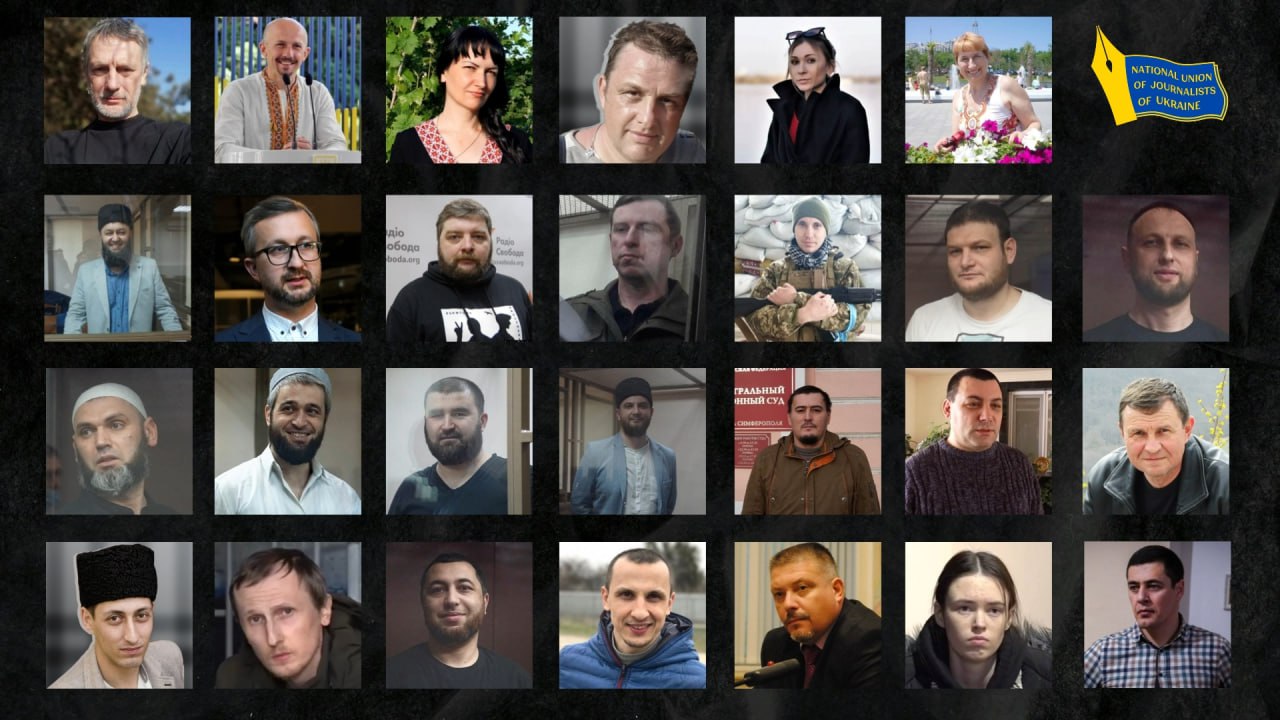
In April 2024, the National Union of Journalists of Ukraine reported that at least 28 Ukrainian media workers and citizen journalists, including those in the temporarily occupied Crimea, are being held in captivity “as a result of illegal detentions, capture, false accusations, and sham “trials” by Russian occupiers in Ukraine”. The Union also published a list of imprisoned journalists.



